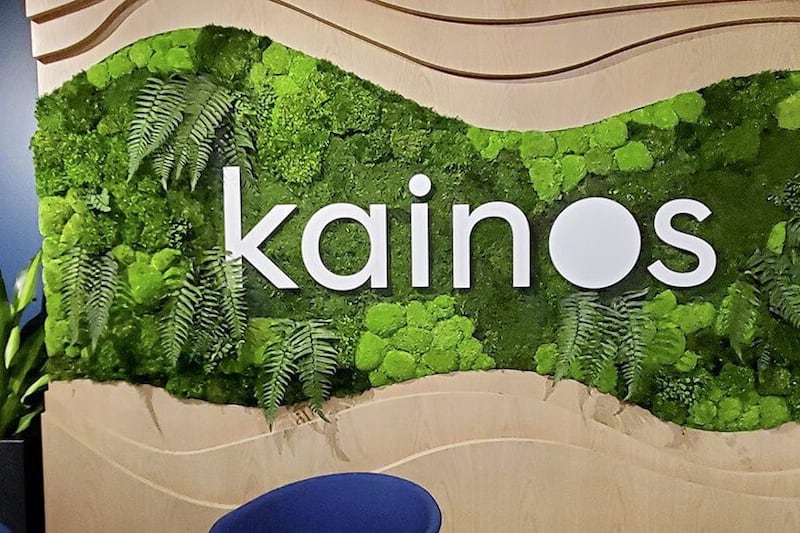IT group Kainos is proceeding with it multi-million plans to develop a new Belfast headquarters, its chief executive has confirmed.
Brendan Mooney said the software giant, which now employs 2,700 people world-wide, hopes to move into the former Movie House cinema site on Belfast’s Dublin Road/Bankmore Square by 2026.
Kainos entered the pre-planning process for the £40 million development in February 2020, just weeks before a global Covid-19 pandemic was declared.
“The detail of how much square footage and the detail in how we go about doing it I’m sure will change,” said Mr Mooney.
“We’re keen to do it, keen to get started to create a state-of-the-art building in Belfast for people to use when they’re working from the office.
“We’re expecting to move at pace in this.”
The chief executive said while a new flexible working policy had been implemented, in recent weeks Kainos staff have been increasingly encouraged to return to the office.
“I’ll really stress the word encouraged rather than mandated,” he said.
“We’re keen that they socialise as well and build up those social connections that have been missing over the past couple of years.”
With its staff growing and office occupancy rates recovering, Kainos anticipates it will run out of space at its Upper Crescent premises before the new headquarters is complete.
The group has confirmed plans to lease the former Bank of Ireland branch on University Road next door and convert it into office space.
The IT group has already lodged a change-of-use planning application for the listed building, which is located close to Queen’s University.
It comes as the London-listed company announced revenues of £303 million for the year ending March 2022, 29 per cent up on last year.
Adjusted pre-tax profits rose by a more modest three per cent to £58.8m, with Kainos citing recent investment and “normalisation of costs”.
Brendan Mooney said the current rise in inflation rates could actually benefit the business.
“Most of what we do across our business is about reducing costs and improving efficiency,” he said.
“Generally austerity drives the adoption of digital transformation, and if there’s inflation, it drives a degree of austerity.”
Monday’s annual results showed bookings were up 35 per cent to £349.8m, with its contracted backlog up 26 per cent to £259.7m.
The chief executive has also hailed the company for successfully balancing its customer base.
Last year saw commercial revenues (41 per cent) overtake public sector (37 per cent) and healthcare (22 per cent).
“When we became a public company in 2015, 63 per cent of our business was from government, healthcare was next biggest and commercial was the smallest,” he said.
“Our team have trebled the size of our government business, but reduced the proportion from 63 per cent to 37 per cent.
“That’s a very difficult trick to do, and they’ve done a very good job,” added Mr Mooney.
“To me it’s about the balance in the business. The reality is that we now have lots of customers in government, healthcare and the commercial sector and each sector experiences inflation and other economic events differently.”
The group’s workforce grew by almost 700 people in the past year to 2,692, spread across 22 countries.
“A third of our business comes from Europe and the US, we’re kind of building out the talent there,” said the IT boss.
Brendan Mooney said while Kainos’ working policy has evolved to let staff work where they wish, he said the firm retains its pre-Covid ethos of employing staff within commuting distance of its main offices, which include Belfast, Derry, Birmingham, London and Gdansk.
“When it comes to recruitment, with some exceptions in the US, we still like to hire close to offices.
“At the end of the day, yes it’s a job, but you also have work friends, and we build software as teams, so that kind of interaction is very, very important.
“So we tend to keep the same hiring model as pre-Covid, which is hiring people close to offices.
“What has changed is that we’re now saying you don’t have to be in the office five days a week, we largely leave it for to people to decide where best to do their work from.”







